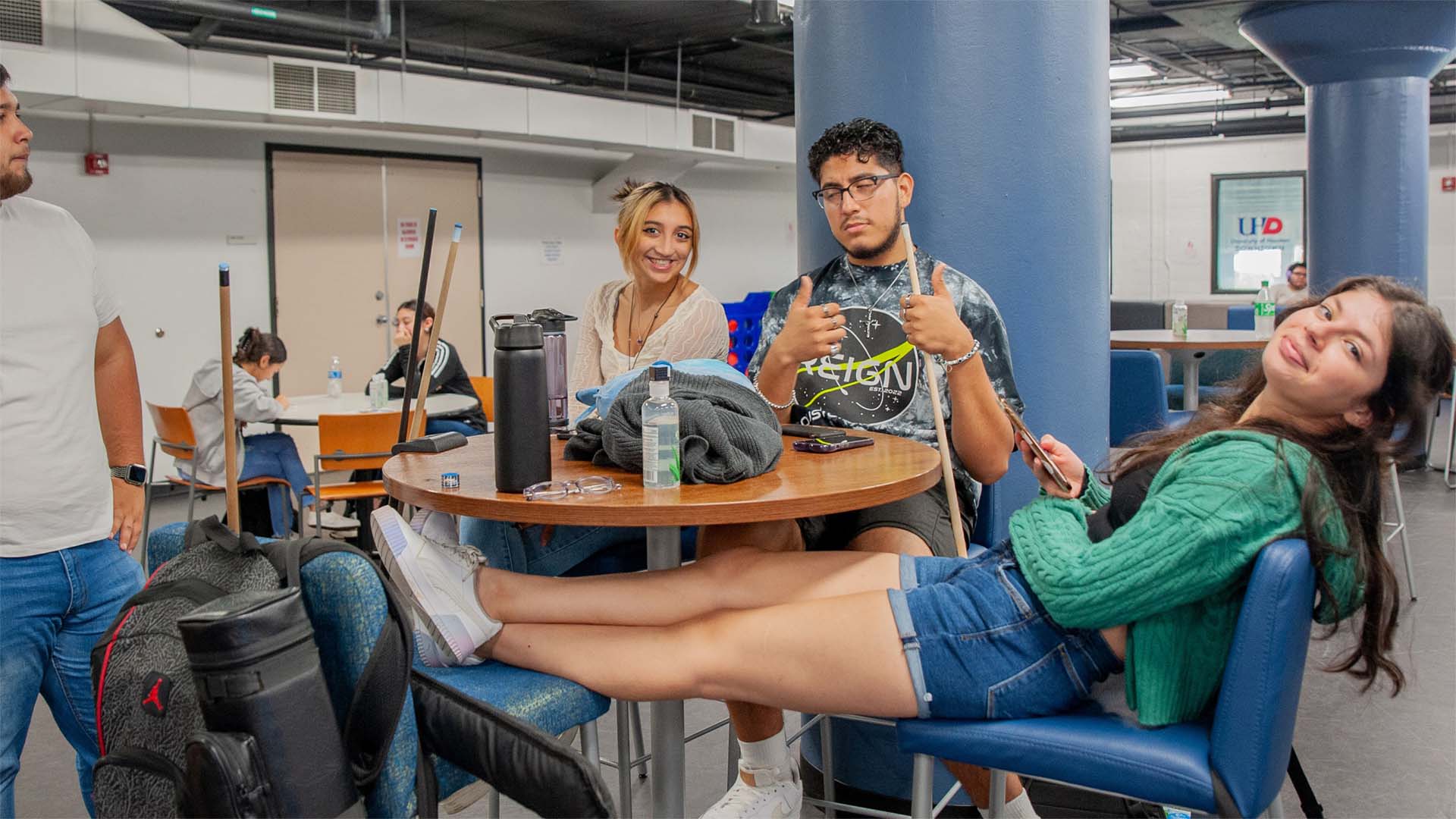First-year Students, Senior Students, and Faculty—Your Voice Matters!
UHD invites you to participate in the National Survey of Student Engagement (NSSE) and the Faculty Survey of Student Engagement (FSSE) (pronounced “nessie” and "fessie" respectively). These surveys allow students and faculty to share their experiences and insights, shaping the future of learning, engagement, and teaching practices at UHD.

What are NSSE and FSSE?
National Survey of Student Engagement (NSSE)
Conducted by Indiana University Bloomington, this survey has collected feedback from
over 6.5 million students at 1,700 institutions since 2000. UHD has proudly participated
since 2008.
Faculty Survey of Student Engagement (FSSE)
This survey complements NSSE by gathering insights from faculty that taught courses
in the 2024-2025 academic year.
FSSE Focusses On
Instructional staff perceptions of how often students engage in various activities.
The importance instructional staff place on learning and development areas.
The nature and frequency of interactions with students.
How instructional staff organize their time, both in and out of the classroom.
Results align teaching practices with high-impact education strategies that promote student success.
How Does NSSE and FSSE Impact You?
Students
NSSE invites first-year and senior students to share their experiences, including:
- Time spent on educational activities.
- Participation in internships, service-learning, and study abroad.
- Perceptions of academic advising.
- Personal and educational growth.
Participation helps UHD understand how to improve learning experiences and engagement levels, making your voice a vital part of UHD’s growth.
FAQ TimelineFaculty
FSSE gathers input from faculty, instructors, and graduate students who teach. It focuses on:
- How instructional staff perceive student engagement.
- Priorities in teaching, learning, and development.
- Interaction with students.
- Allocation of time inside and outside the classroom.
Faculty feedback ensures teaching practices align with effective strategies to foster student success.
FAQ TimelineWhy Does Your Participation Matter?
Your input directly impacts UHD’s ability to improve learning experiences, identify areas of strength, and address opportunities for growth. These surveys measure:


Why Are NSSE and FSSE Important?
NSSE and FSSE are important tools for helping UHD faculty and administrators assess the effectiveness of their programs and services by answering the critical question, “How well are we doing?”
These surveys provide valuable benchmarks, enabling UHD to compare student and faculty engagement with other institutions. The data gathered from NSSE and FSSE guide decisions aimed at enhancing academic programs, student life, teaching practices, and policies. Additionally, they promote productive discussions about teaching, learning, and the overall quality of the undergraduate educational experience at UHD.
Attention Students
Stay Informed of Important Dates!
Don't miss your chance to participate in NSSE! Check out the timeline to see when you'll receive your survey link and ensure your voice is heard. Mark your calendar and be ready to share your experience!
Initial Survey Invitation
Share Your Voice—Shape the Future of Our Campus
First Reminder Email
The NSSE survey takes just 15 minutes—make your impact now!
Second Reminder Email
Don’t Miss Out: Share Your Feedback Now
Third Reminder Email
Don’t miss your chance to complete the NSSE survey—help improve student life at UHD!
Final Survey Reminder
Last Chance! Complete the NSSE Survey Before It's Too Late
May 12, 2025
NSSE 2025 Survey Concludes
Make Sure to Complete the NSSE Survey Before It’s Too Late!
NSSE FAQs
In appreciation for participating, we will enter all students who complete the survey into a drawing for 1 of 4 iPads (worth $349 each) and 1 of 16 AirPods (worth $129 each). Your chances of winning depend on how many students complete the survey. 5249 UHD students will be invited to participate.
Why does NSSE ask about your background and demographic information?
The survey asks these to reveal whether different groups of students have fundamentally similar or different educational experiences.
UHD’s Campus Administrative Contact for the NSSE survey is:
Dr. Divya Bhati, Associate Vice Presiden
Institutional Effectiveness, Strategic Planning and Assessment
Email: bhatid@uhd.edu
For any additional information about NSSE, please visit the offical NSSE website at Indiana University.
Attention Faculty
Important Dates to Remember!
Make your voice count in FSSE! Stay informed about when you'll receive your survey link by checking the timeline. Mark your calendar and take the opportunity to share your experiences and perspectives!
Initial Survey Invitation
Help UHD improve learning experiences by sharing your thoughts in the FSSE survey.
First Reminder Email
Second Reminder Email
Your insights as faculty are essential—take the FSSE survey today!
Final Survey Reminder
There’s still time! Click the link in your email and complete the FSSE survey now!
May 12, 2025
FSSE 2025 Survey Concludes
Don't Miss Out! Complete the FSSE Survey Before It’s Too Late!
FSSE FAQs
Previous Reports
Below are the results from previous National Survey of Student Engagement (NSSE) surveys, offering valuable insights into our students' experiences and perspectives. These findings highlight key areas of academic engagement, campus life, and overall satisfaction, guiding our efforts to enhance both strengths and areas for improvement.
